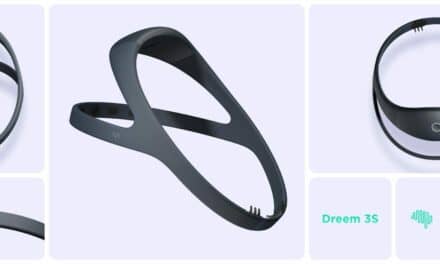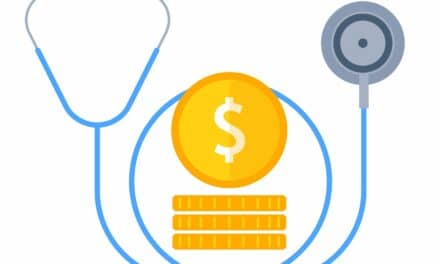When a sleep tech is on vacation or a referral source unexpectedly sends over a high volume of new patients, using a scoring company can be a viable solution. Here’s what you need to consider.
When your sleep center can’t diagnose patients in a timely manner, the atmosphere can take a turn for the worse. Referring clinicians may start sending patients elsewhere for sleep disorders testing (or worse, not sending them for diagnosis at all), insurance plans may change mid-diagnosis or mid-treatment, and patients may lose motivation to start therapy because they figure the disorder couldn’t have been that important if it took months to get their results.
Sound familiar? Whether it’s caused by a sleep tech taking a much-needed vacation, a seasonal surge related to the meeting of insurance deductibles, or a different disruption to your usual workflow, a potential solution for backlogged sleep labs is to consider outsourcing some or all of your sleep study scoring to scoring companies. Due diligence is paramount, as is sufficient time to ensure the company you select can meet your expectations.
Setup Scenario
Most sleep scoring companies can onboard your facility within a matter of days after initial contact (between 24 and 72 hours, say the companies interviewed for this article), depending on how quickly you provide them with your scoring expectations. Commonly during onboarding, the scoring company will request a questionnaire to glean your current scoring practices, examples of your previously scored studies, and sometimes a signed contract.
“I know most don’t think about this until they are in a jam, but planning ahead and getting an outsourced service set up has no cost and it can be ready to go if the need arises,” says Sarb Dhesi, DC, president and CEO of Opus Management and Consulting, where about 25% of clients use Opus on an as-needed basis (the other 75% use it consistently throughout the year).
Natalie Morin, president and CEO of Sleep Strategies Inc, says, “Our detailed process of signing on new clients allows us to fully understand their requirements and business objectives….Our scoring questionnaire is the foundation for providing the successful delivery of sleep scoring and a one-size-fits-all solution has no place in the world of sleep scoring services.” The majority of Sleep Strategies’ clients use its scoring services regularly, but clients who have an immediate need for interim scoring assistance can get set up as quickly as 24 to 48 hours. Understanding the sleep center’s existing scoring processes is important before getting started, Morin says. “Our clients have put years of experience and training into refining their scoring processes, and it is imperative that we adapt our approach to reinforce, not negate, the nuanced and varied habits of each of them,” she says.
Many scoring companies will provide you with a few complimentary sleep study scorings up front, in order for you to vet their capabilities. So if the company you are considering does not offer to score a few trial studies, then you should ask. Dhesi says, “We get requests to do sample scoring of studies to check the quality.…I think this is a great idea as you can run the results against your ‘gold standard’…. All new clients will also get a few free scored studies to get used to the process and scoring.”
Vetting Reliability
In addition to comparing the initial scored studies to your facility’s standard, you should ask questions to determine whether the scoring company will meet your reliability expectations. Here are some questions to ask.
- How long have you been in business?
- What sleep labs, if any, are on your current client roster with the same number of beds and volume as my lab?
- What hospital-based facilities, if any, do you have on your client roster? (Many times hospital-based facilities have higher due diligence requirements.)
- Do you charge for rescores?
- Do you use any nonregistered technologists? If so, for what purpose?
- Do all of your techs participate in the American Academy of Sleep Medicine Inter-Scorer Reliability program?
- What are the names of three references I can call?
- Can I see your certificate of errors and omissions and general liability insurance?
Your interpreting physicians may also want to continually confirm that the company’s scoring is consistent with your in-house scoring. “With nearly all of our contracts, the facilities have physicians and board-certified sleep specialists who review the scoring results of each study we score. You have to remember that each facility and its physicians have unique preferences, and the scoring rules are sometimes hybridized based on the direction of the interpreting physician,” says Tim Winchester, RPSGT, RST, co-owner of Registered Sleepers Inc, where about 30% of clients use the scoring service on an as-needed basis.
Intermittently, you may also want an in-house scorer to duplicate-score some of the out-of-house scored studies for peace of mind. “Many of our new clients do this, and I would highly recommend this, especially if the scoring company is trying to lock the lab into a contract,” says Will Spriggs, RPSGT, RST, president and owner of Sleep Center Services LLC, where he says a “large” number of clients use the service as needed to help with backlogs such as when a tech is sick or on vacation.
If the scoring does not meet your expectations, a reasonable first step is to speak with your company contact about how the results differ from what you had anticipated. “Some labs and physicians are so used to their scoring technician that they can read each other’s minds….Nothing wrong with that, but understand that when you outsource, it takes time to get that understanding and relationship,” Dhesi says. “If your outsourced scoring study is within a small percent of your ‘gold’ standard, that is not bad or the end of the world; it is workable and adjustable.”
Vetting Compatibility
Once you have narrowed down the companies to the ones that meet your reliability needs, you should also consider how compatible each finalist is with your other expectations. Here are some questions to ask.
- Will I need to sign a contract? (A contract doesn’t necessarily mean you will be locked into a minimum number of studies or into an exclusive agreement, so don’t necessarily shy away from a contract if you are seeking only intermittent help.)
- What is your turnaround time? Is it guaranteed? What happens if a study is not turned around in time (will I get a discount?)?
- Do you have the software that my facility uses? (Make sure they have the correct version of it.)
- Are the chosen scorers familiar with the equipment used by the facility?
- What are the RPSGT registry numbers of the scorers who will be assigned to my facility?
- Who will be my contact person? Are there limitations on calling him/her by phone?
- What should I do when we plan to upgrade or change recording systems?
- How do we get the sleep study data to you? How long does the data transfer typically take, and is it automated or manual? Is your data transfer portal compliant with HIPAA requirements?
- How long do we have access to the scored results and reports on the data transfer portal?
- Will you generate custom reports, if we supply the report templates?
- Are there any maintenance fees, start-up fees, or minimum volume requirements?
- How often do you submit invoices, or do I have to pay up front?
- What methods of payment do you accept?
Other Options on the Horizon
Autoscoring solutions have made progress in fits and starts in sleep medicine, but a new generation of platforms may make autoscoring software a viable solution for your center. One such emerging software platform is EnsoSleep by a Madison, Wis-based company called EnsoData; EnsoSleep is in a late stage of the FDA 510(k) clearance process and as such may be available to US-based sleep labs for autoscoring in short order. (It is currently only available for research testing and comparative analysis purposes.) “For a sustainable solution, automated scoring based platforms like EnsoSleep can provide unlimited scalability to address changes day-to-day and month-to-month changes in volume while reducing costs and freeing up clinician time for patient education, coaching, and other critical services,” says Chris Fernandez, EnsoData co-founder and CEO.
Scalability—since its capacity is a function of computational capacity, not human resources—is the biggest advantage of scoring software solutions. “Within the first hour of installation, EnsoSleep can provide scoring for an entire backlog of sleep studies, as well as any new studies that have completed acquisition,” according to Fernandez.
If sleep labs gain confidence that software options such as EnsoSleep and Michele Sleep Scoring by Winnipeg, Canada-based Younes Medical Technologies meet their reliability expectations, then backlogs may become a distant nightmare. For now, planning ahead to find a solution for your sleep center is the best way to maintain a prompt workflow that keeps patients and referring clinicians happy.
[sidebar]
Contracting with a Freelance Sleep Tech Versus a Scoring Company
Another option to assist with backlogs is to contract with a freelance sleep technologist, such as a former employee. Former employees are likely already familiar with your software and scoring preferences, as well as already have an established rapport, so the start-up time is minimal to none.
The main downside of using a freelance sleep tech is their turnaround times may vary. “If that person gets sick, or decides not to score any more, or gets a sleep tech position at a lab and then does scoring after they wake up the next day or before their next shift, the quality and turnaround can suffer,” says Sarb Dhesi, DC, president and CEO of Opus Management and Consulting.
Natalie Morin, president and CEO of Sleep Strategies Inc, notes there may also be legal implications of using a freelancer, who may not have the liability insurance that a sleep scoring firm would typically have. “Decades ago, a sleep lab’s best bet in times of backlog or staffing issues was to seek out a technologist looking to earn some extra cash on the side. These part-time freelancers, however, posed legal problems as they raised liability and accountability concerns,” Morin says. “Other issues included reliability, lack of quality control measures, and volume limitations. Freelancers absolutely have a role in sleep scoring, but the reality is hospitals require a level of security, HIPAA compliance, and quality control that most freelancers cannot meet.”
[/sidebar]
Sree Roy is editor of Sleep Review.





